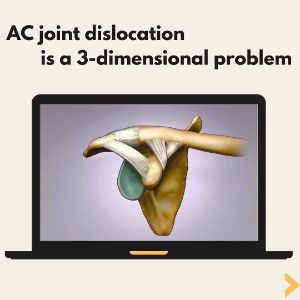If you’re experiencing pain and stiffness in your shoulder, you may be developing frozen shoulder. Also known as adhesive capsulitis, frozen shoulder is a condition that affects the shoulder joint and causes pain and limited mobility. Signs and symptoms typically begin slowly, then get worse. Resolving this condition can take one to three years, even with managed treatment.
What Can Cause Frozen Shoulder?
Circumstances that force you to keep a shoulder still for a long period increase the risk of developing frozen shoulder. Such events can include:
- Necessary immobilization after surgery
- Forced inactivity after breaking an arm
However, some cases of frozen shoulder develop for no explainable reason and demand directed treatment to correct.
How Do I Know If I’m Developing a Frozen Shoulder?
How do you know if you are developing a frozen shoulder? Common signs will include:
- Pain and stiffness in your shoulder: This is the most common symptom of frozen shoulder. The pain and stiffness can be mild or severe and may worsen at night or when you try to move your arm.
- Limited range of motion: Another sign of frozen shoulder is a limited range of motion in your shoulder joint. You may struggle to reach behind your back or lift your arm above your head.
- Difficulty sleeping: If you have frozen shoulder, you may find it difficult to sleep comfortably at night due to the pain and discomfort in your shoulder.
- Muscle weakness: As the condition progresses, you may experience muscle weakness in your affected arm.
- Inability to perform daily activities: Frozen shoulder can make it difficult to perform everyday activities such as getting dressed, reaching for objects or carrying groceries.
The pain and stiffness will develop gradually and worsen over time, causing limited motion and difficulty with use. This is caused when the capsule of tissue enclosing the shoulder joint thickens and tightens, restricting movement.
Treatment in New York for Frozen Shoulder
If you’re experiencing any of these symptoms, seeing Dr. Steven Struhl at AC Joint Separation in New York or Westchester is important. He has the knowledge and expertise to diagnose frozen shoulder through a physical examination and may recommend imaging tests such as X-rays or MRI scans.
Treatment for frozen shoulder typically involves a combination of physical therapy and pain management. Dr. Struhl may recommend exercises to help improve your range of motion and strengthen your shoulder muscles, as well as pain medications or injections to help manage your symptoms.
Surgery may sometimes be necessary to loosen the tight tissues in your shoulder joint. However, this is typically only recommended if other treatments have been unsuccessful.
If you’re experiencing pain and stiffness in your shoulder, it’s important to seek professional help from Dr. Struhl. Frozen shoulder can be a frustrating and painful condition, but with the right treatment, you can get back to your normal activities and enjoy life without discomfort. Contact the offices of AC Joint Separation today to schedule an exam and consultation.
Posted on behalf of Steven Struhl MD





